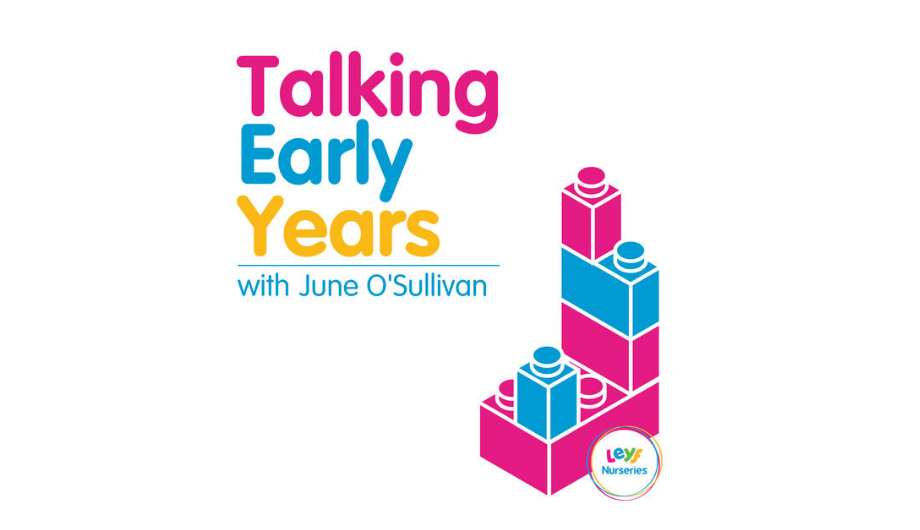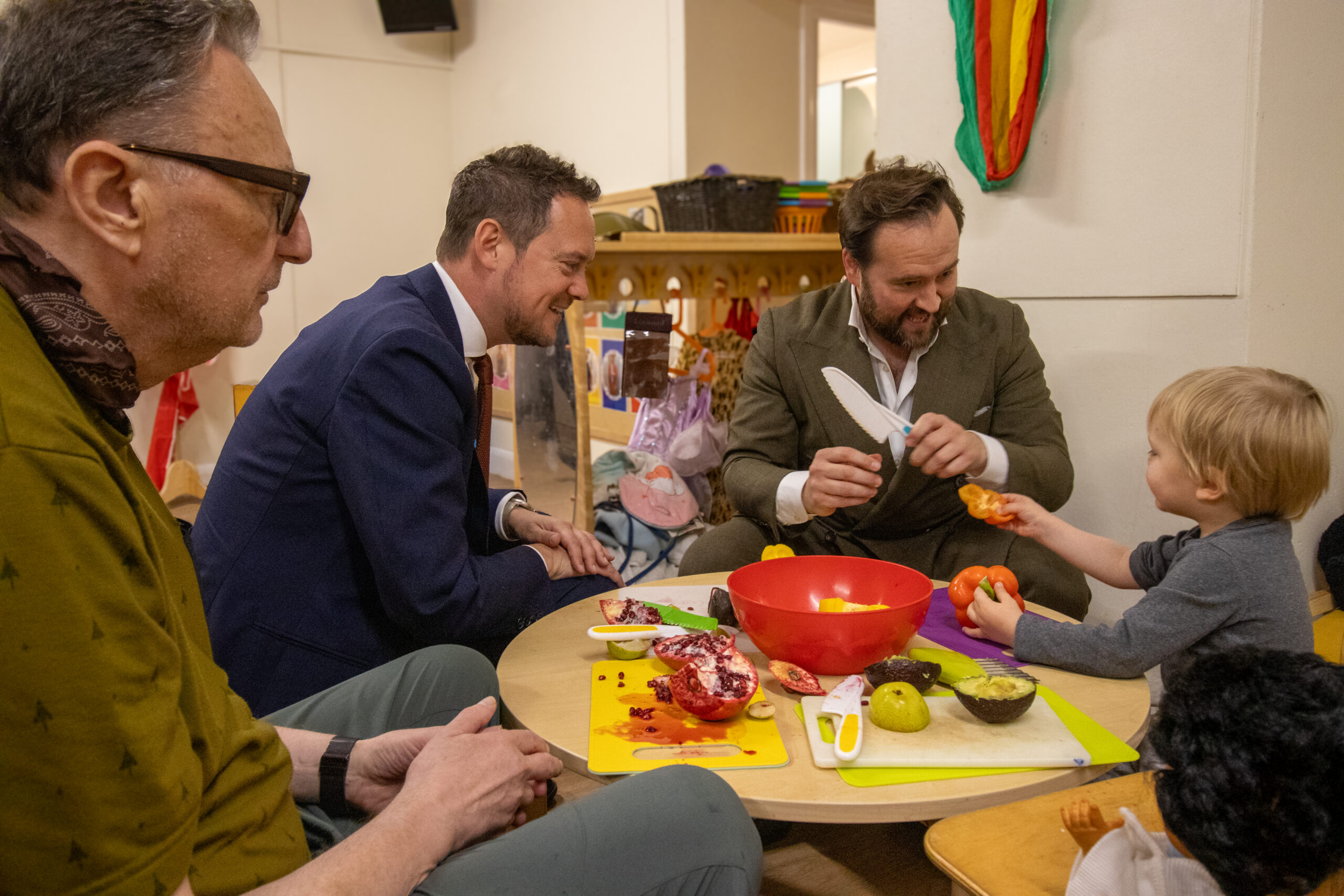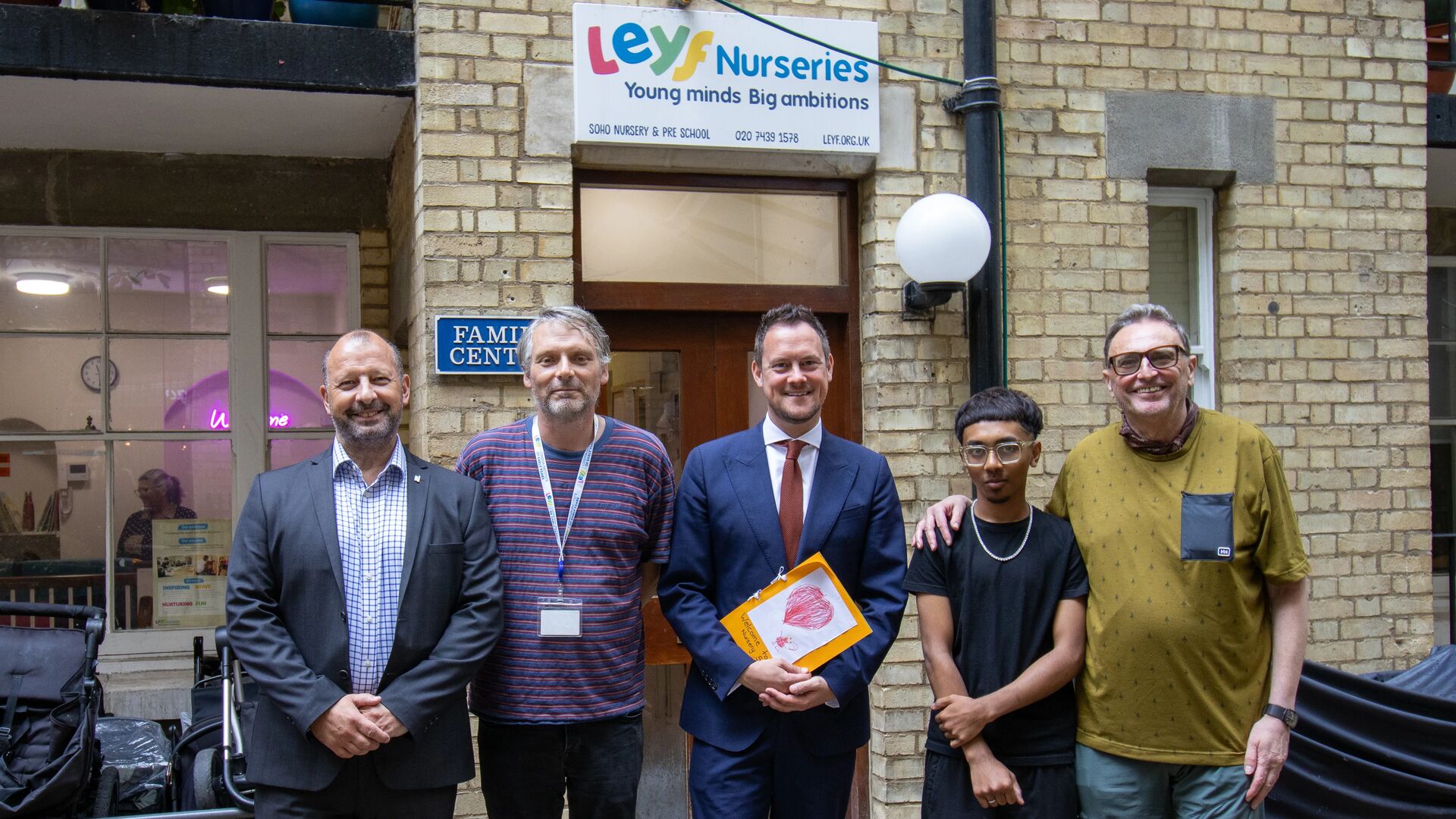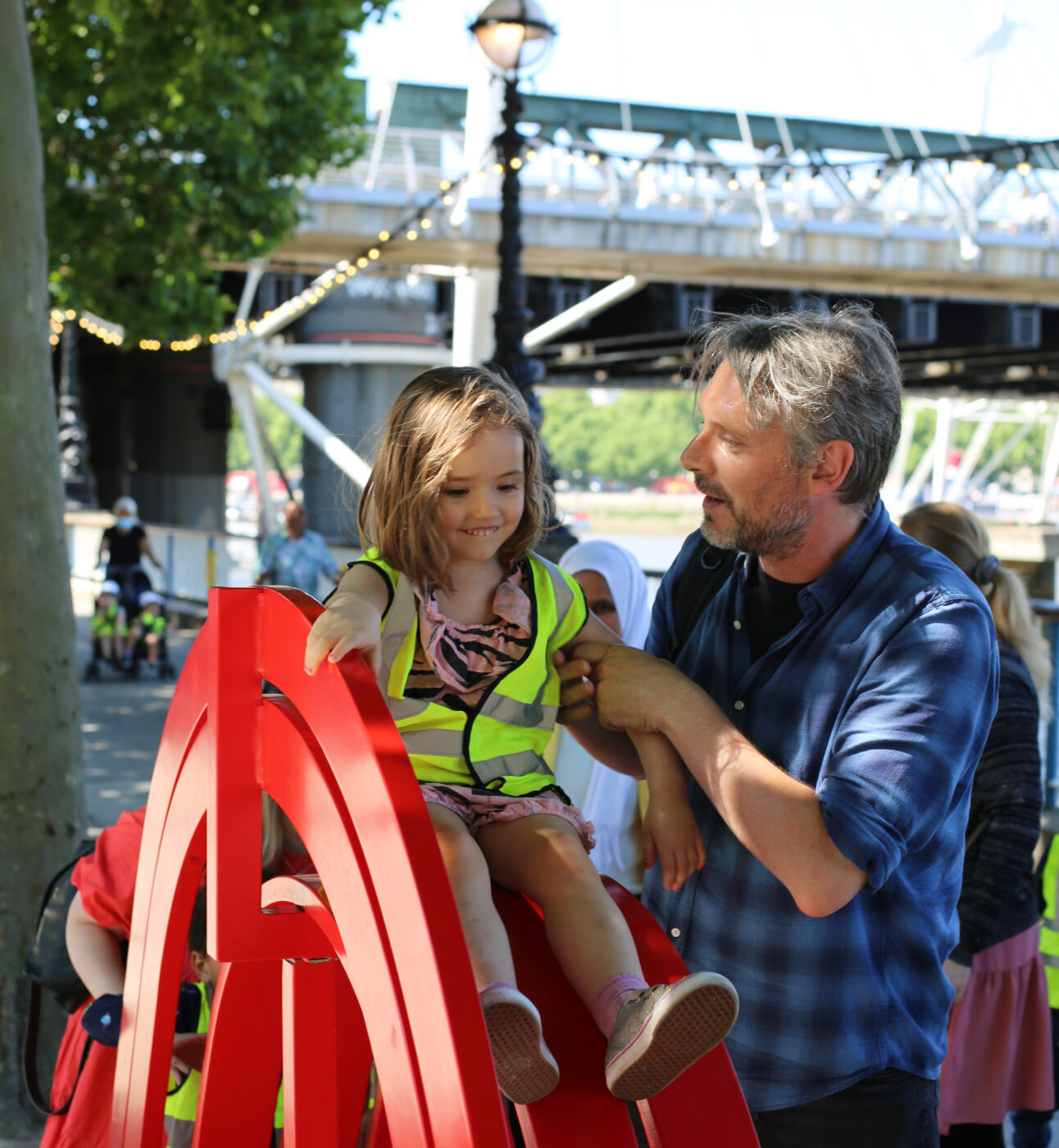
Talking Early Years: June O’Sullivan and Krupesh Hirani
I kicked off this year’s podcast chatting to the well-informed Krupesh Hirani, London Assembly Member for Brent and Chair of the London Assembly Health Committee and the Health…
August 4th 2025
I’ve long been an advocate for getting more men into childcare (MiC). It simply seems absurd to write off half the human population as either unwilling or incapable of educating and nurturing young children. My journey began on International Men’s Day, 19th November 2012, when I invited men working in childcare to the Barley Mow pub for a drink and an honest conversation. Fifty men came — of all ages, backgrounds, and stages of life. Buoyed by the level of interest, we held the first NW conference on MiC in 2013 and we won the NW award for Inclusive Practice the same year. Thirteen years on, we’ve made some progress, but not enough.
This remains a complex issue, shaped by deeply embedded stereotypes and an underlying discomfort — particularly among some parents — about the idea of men working closely with young children. We need to acknowledge that discomfort, not avoid it, and balance it against the many benefits of gender-diverse early years teams. Only by listening to the perspectives of female colleagues, parents across diverse cultural groups, children, and the men themselves, can we fully understand and shift attitudes — rather than reacting out of fear when high-profile abuse cases (such as those recently reported in Australia) hit the headlines.
Let’s be clear: the presence of abusive individuals in any profession is horrific and must be addressed. But abuse is not gendered — some of the worst cases of cruelty in nurseries have been perpetrated by women. The real solution lies in strong values, cultures of openness, transparent practice, and fair systems of accountability, which root out harmful behaviour, no matter the perpetrator’s gender.
Only 2% of Early Years teachers in the UK are men. That number has remained stubbornly low for years. By contrast, at LEYF, we have 8% male staff — still not enough, but better — and that’s because we’ve created a culture where people feel secure. Staff know we will act fairly, swiftly, and compassionately if concerns or accusations arise. Many of our male colleagues have stayed with us for years because they trust that.
This is about more than just recruitment — it’s about retention, inclusion, and visibility.
The government’s interest in encouraging more men into Early Years is not new. There was a concerted push in 2018, which fed into the MITEY campaign (Men in the Early Years), coordinated by the Fatherhood Institute. Elsewhere, countries like Norway, Denmark, and Turkey have successfully increased male participation in early years education to around 10–18% thanks to public investment, policy action, and cultural shifts (Peeters, 2007; Cameron et al., 2001).
It’s simply nonsensical, especially in the midst of a recruitment crisis, to ignore 50% of the talent pool. We’ve seen that older men looking for a career change often bring exactly the patience, humour, and depth of life experience that children respond to. Meanwhile, young men are frequently deterred by outdated careers advice and gender-proscribed expectations that position Early Years work as “women’s work.” That needs to change — and fast.
Once we’ve recruited men into Early Years roles, we need to create settings that acknowledge the unique pressures they may face. Surveys, as far back as 2011, show that nearly 100% of female staff supported having male colleagues. They welcomed the gender balance and felt it was positive for children to see diverse role models (Rolfe, 2005; Cameron, 2006). But they were often less aware of the unconscious biases that can make male colleagues feel like outsiders or suspects.
That’s why many men are attracted to settings where other men already work. It makes a difference. Consider recruitment campaigns with male imagery, male apprentices, male teachers on training programmes, and buddy systems to support new male starters. Even a simple change like introducing male staff to parents during settling-in can go a long way to normalise their presence. Photos in literature, male chefs engaging with children, or having dads meet male staff early can reassure anxious families.
When male staff face parent concerns, for example requests that they not change nappies, we must stand firm in our values. Male staff deserve to know that leaders will ‘have their back’ when inappropriate biases surface. Too many settings capitulate under pressure, changing routines or adding surveillance, which only reinforces stigma.
The risk of false accusations weighs heavily on many male colleagues, with surveys suggesting almost half have this concern (Peeters, 2007). That’s why leadership matters: cultures of trust, fairness, and professionalism keep everyone — staff and children alike — safe and confident.
 What Do Men Do Differently?
What Do Men Do Differently?
There’s no magic difference — and nor should there be. Men in Early Years should, and do, perform every task listed on their job descriptions, just like women. But gender diversity can enrich the team. Children benefit from seeing nurturing men, from having different styles of play, communication, and problem-solving, and from challenging stereotypes that limit everyone.
Our own research with the University of Wolverhampton asked children directly what mattered most to them. They didn’t care about gender — they valued competence, kindness, and trust. You can see some of this captured beautifully in LEYF’s “Sensitive Superhero Steve” video, which the children made with limited adult input to delightfully translate their experiences: https://www.youtube.com/watch?v=uO_J4gznnuw
We need a national strategy to recruit and retain men in childcare – not as a token gesture, but through sustained, meaningful action. We also welcome the Minster’s plans, but to ensure we don’t lose momentum, let’s double down on what we know already works:
Above all, we need to tell a better story about Early Childhood Education and Care (ECEC). It is not just an economic lever to help parents return to work but a fundamental right of every child. If we believe in the value of ECEC, then we must elevate its status, improve its pay and career pathways, and make it clear that it’s a place for everyone, both men and women, to thrive.
Let’s dismantle the tired stereotypes, support our male colleagues, and show children a world where care and education are everybody’s business. Because Early Years is much better together.

LEYF Books and Articles
|
LEYF Podcast & blogs
|
Research
|
Colleagues Books
|
FilmsLEYF: Men are in childcare: https://www.youtube.com/watch?v=2qhaadEdwMc |
Recruitment ActivitiesMale Childcare and Teaching Jobs: https://www.linkedin.com/company/male-childcare-and-teaching-jobs/posts/?feedView=all |

I kicked off this year’s podcast chatting to the well-informed Krupesh Hirani, London Assembly Member for Brent and Chair of the London Assembly Health Committee and the Health…

Ordinary People Doing Extraordinary Things Podcast Series For International Men’s Day on the 19th November 2012, I invited as many men as I could find…

Can we do this? Will we break the law? The HR Director rolled his eyes and said Ohhhhh, let me double check! I said “Make it happen, It is hugely…